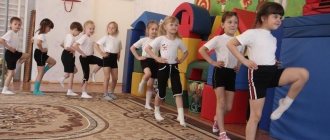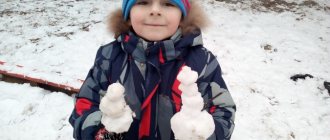Scheduling. March (senior group)
Lyubov Alexandrovna Dmitrieva
Scheduling. March (senior group)
Topic: International Women's Day.
"Houseplants".
Target:
• Formation of a feeling of love and respect for a woman, a desire to help them, take care of them.
• Attracting children's attention to the holiday of March 8th.
• To develop children's interest in the tradition of its celebration.
• Contribute to the creation of warm relationships in the family.
• To consolidate children's knowledge about indoor plants: balsam, ficus, chlorophytum, geranium, begonia, primrose.
Learn how to care for them.
Tasks:
• Cultivate a respectful, tender and grateful attitude towards mothers and grandmothers, a caring and sensitive attitude towards those closest to you, the need to please loved ones with good deeds.
• Deepen children's knowledge about the role of mother and grandmother in their lives.
• Develop children's interest in their loved ones.
• Contribute to the creation in children of positive emotional experiences and a joyful mood from the holiday. Encourage children to participate as much as possible in preparing family holidays;
• Carrying out regular chores around the house.
• To form in children an idea of their mother’s profession.
• Foster a respectful attitude towards the work of adults and a desire to provide all possible assistance.
Reporting event: “When my friends are with me.”
MARCH 03/05 – 03/09/2018
Topic of the week: International Women's Day. "Houseplants"
1 half day OD 2 half day ind. work working with parents
Monday
05.03 1. Introductory conversation on the topic “What grows on the window”: clarifying and expanding students’ ideas about indoor plants.
2. Game of low mobility “We won’t say where we were, but we’ll show you what we did”: complicating the rules of the game with verbal designation of actions, correct use of verbs (tense, person).
3. Work in a corner of nature: planting peas and dill: expanding ideas about how to plant seeds of different sizes, arousing interest in growing plants. Speech development. No. 1 s. 91 Conversation on the topic “Conversation on the topic “Our Mothers.” Reading the poem by E. Blaginina “Let’s Sit in Silence” and A. Barto “Before Bed.” – Help children understand how much time and effort housework takes from mothers; point out the need for help for mothers.
Methods and techniques. Conversation. Answers on questions.
Hood. tvrch. (Drawing) No. 74 “Children doing exercises” - Teach children to determine the relative size of body parts, the general structure of the human figure. Reinforce drawing and painting techniques.
Methods and techniques: Clarification. Show. Discuss the drawing sequence. Consider ready-made drawings.
Music Conversation with children “We need different mothers, all kinds of mothers are important.”
Goal: to deepen children’s knowledge about the role of mother and grandmother in their lives.
Articulation gymnastics.
Reading proverbs about mother.
Goal: consolidate knowledge of proverbs about mother.
Work in a corner of nature: Search and research activities: “What plants did we plant?”
Didactic games: “Associations” by profession Labor assignments for establishing order in the group for Denis S., Artyom, Anya “Every toy has its place”: consolidating the ability to determine the location of each toy, providing all possible assistance to adults. Update of information stands “For you, parents!” and “Advice from Experts” with recommendations for studying the topic of the week and the work plan for the week.
Tuesday
03.03 Conversation “We need different mothers, all kinds of mothers are important” (about the professions of mothers and grandmothers);
Games with objects (cubes) Construction
Finger games. “This finger is grandpa.” Role-playing games: S/R game “Daughters - Mothers” - relationships in the family. Help children determine the place where the game will be played, assign roles
Word game “What is your mother’s name”: consolidate knowledge of the name of your mother and the mothers of other children.
Reading and looking at the book: Yu. Yakovlev: “Mom” Cognitive development (FEMP) Lesson No. 1 p. 49 P/s: To consolidate the idea of the ordinal value of the numbers of the first ten and the composition of the number of units within 5. Improve the ability to navigate in space relative to yourself. Improve the ability to compare up to 10 objects by length. Methods and techniques. 1 hour I/u “Who can make up the number faster”
2h. I/u “Let’s make a number” 3 hours. D/i "Who left"
4h. I/u Talk about the length of the strips" 4. h I/u "Where the object lies"
Hood. creative (Applique) No. 83 p. 89
“Cut out and paste whatever picture you want” - Teach children to conceive a simple plot for transferring to Apple. Reinforce cutting techniques. Methods and techniques: Talk about something they could cut and paste. Explanation. Show. Review of works mark original works.
Physical education in the air Reading G. Okhapkin’s “The History of a Plant”: developing the skills of students to listen carefully to the work, evaluating the actions of the characters and drawing conclusions.
D/i “Guess the plant”: developing students’ skills to recognize a plant by description.
Minute of safety “Dangerous situations on the street and in the yard”: familiarizing pupils with the rules of behavior in situations of discovering unfamiliar objects and when meeting strangers, cultivating attentiveness and caution. Walk D/i “Insert the missing word”, “Choose the word” with Sasha, Gleb, Masha, Matvey.
With Ulyana, Katya, Kira, Egor - development of movements - consolidate the skills of moving in a circle synchronously in pairs.
Participation of parents in the final event “Happy Spring Holidays!”
We congratulate mothers and grandmothers on the holiday and present gifts made by children
Wednesday
07.03 Conversation: “Gifts for mothers and grandmothers” - to cultivate a feeling of love and care for women.
Repetition of poems and songs for the holiday “March 8”.
Did. games for sensory development:
arrange the dishes into groups.
Breakfast: formation of CGN: sit correctly at the table, move a chair closer to the table, hold a spoon correctly.
Role-playing game: “Let’s go to visit grandma” - instill a friendly attitude towards family members.
Children's activities in the creativity zone.
Outdoor games, physical exercises invented by children. Familiarization with the surroundings world "The World of Indoor Plants". O. A. Solomennikova. No. 13с. 66
P/s. Expand your understanding of indoor plants. Learn to recognize and correctly name indoor plants. Create a desire to help adults.
Methods and techniques: Conversation. Screening of the presentation “Indoor plants and their care.” Prak. work “Proper care of plants” subgroup.
Physical culture (hall)
Choreography
1. Consideration of the encyclopedia “Indoor Plants”: expanding ideas about the diversity of indoor plants, the individual characteristics of some of them, living conditions and rules of care.
2. Verbal game: “When does this happen?”: clarifying and deepening students’ ideas about the seasons.
3. Communication on the topic of the s/r game “Flower Shop”: expanding the pupils’ horizons about the professions of the flower industry (florist, gardener, florist, etc., activating vocabulary on the topic. Game task “Where I’m going, I know!”: teach walking backwards forward, maintaining the direction (Vika, Denis K, Christian, Anya) consultations on parenting issues.
Consultation
"Children's games and toys."
Friday
Reading literature V. Sukhomlinsky “My mother smells of bread” “My mother and I.” "Spring Festival". D\and “The fourth odd one” consolidate the classification in the natural world; develop attention and the ability to justify your choice.
Wash the flowers - reinforce children's ability to carefully wipe the leaves without damaging them. Creating conditions (introducing a screen, fairy tale characters) for theatrical activities based on the fairy tale “Cat’s House”: improving the students’ abilities to independently convey the plot of the fairy tale, using means of expressiveness, to convey the characteristic features of the characters’ images Speech development. No. 2 s. 92 Compiling a story based on the painting “We Bathe a Puppy” - Teach children to work with pictures with sequentially developing action. Methods and techniques: Looking at the pictures, determining whether they are in the correct order. Making up a story based on a picture. Ask a few people. Rate the stories.
Physical Culture
Choreography (additional education) Reading S. Georgiev’s “Granny’s Kindergarten”: introduction to the understanding of imagery and expressiveness of the language of literary works, Finger gymnastics. “Indoor Flowers”: learning the text and movements of a new finger game, developing fine motor skills, coordination of finger movements. D/i: “Shopping at a flower shop”: consolidating the students’ skills in choosing indoor plants by eliminating the characteristics named by the teacher, as well as when describing, finding and naming plants according to their characteristic characteristics. In modeling, learn to roll balls of different sizes. with Artyom, Veronica, Kirill, Dasha. Individual conversations and consultations on parenting issues.
Recommendations for parents on how to develop a positive attitude towards kindergarten in their children.
Topic: “Acquaintance with folk culture and traditions”
"Khokhloma".
Goal: “Getting to know Khokhloma”
Tasks:
• Expand children's horizons. Introduce children to one of the folk crafts of Russia - Khokhloma painting;
• consolidate children’s ability to perform decorative patterns of Khokhloma painting on various template forms;
• attract children's attention to Russian folk culture;
• enrich children's understanding of the history of origin and temporary changes;
• introduce children to the traditions of Khokhloma painting (“curls”, “curl”, “berry”, “grass”, “leaf”);
• consolidate children’s ability to design a decorative composition using elements of Khokhloma;
• develop aesthetic feelings and imagination;
• cultivate initiative, independence, activity.
Final event: “Khokhloma miracles” with a computer presentation.
Topic of the week: “Khokhloma”
1 half day OD 2 half day ind. work working with parents
Monday
05.03 Examination of illustrations and Khokhloma products. Conversation “Let's remember the history of the development of Khokhloma folk crafts”
D/i “Find a pair”, “Collect a whole”. Canteen duty. Washing: improve the ability to wash quickly and accurately, maintain order in the washroom. Desktop Lego constructor. Speech development. No. 3 p. 93 Stories on the topic “How we congratulate kindergarten employees on International Women’s Day.” D/i “We won’t say where we were.” — Teach children to write detailed and interesting stories on topics from personal experience; develop initiative and the ability to improvise.
Methods and techniques: Conversation. Game “We won’t tell you where we were, but we’ll show you what we saw.”
Hood. tvrch. (Drawing) No. 77 “Painting jugs.”
P/s. Teach children to paint clay products using colors. scale and pattern elements. Develop aesthetic creativity.
Methods and techniques: Remember how pottery was painted. Encourage students to use a variety of brush techniques. Viewing finished drawings
Music Conversation about nesting dolls.
Continue to introduce Russian toys, Examination of different types of nesting dolls. Reading the poem by N. Radchenko “Matryoshka” D/i “Learn the pattern” - consolidating the elements of Dymkovo, Gorodets, Gzhel painting. Making riddles about nesting dolls.
Evening walk Outdoor game: “Traps with squats” - teach to follow the rules of the game. Game “Shade the nesting dolls” “Khokhloma patterns”: strengthening the skills of drawing elements of grass with the end of a brush, berries - with a poke using a cotton swab. Roma, Egor.
. Working with parents: designing a mobile folder: “Teach with us”, Organize an exhibition of arts and crafts together with parents.
Consultations for parents: “Introducing children to folk traditions”
Tuesday
06.03 Examination of the products of Khokhloma masters (what elements are used in painting, what they prefer to paint)
2. Acquaintance with the element of Khokhloma painting “grass”, “kriul”
3. Didactic games “Trace the picture” (finger, pointer, brush)
“Assemble the whole Cognitive Development (FEMP) Lesson No. 2 p. 50
P/s: Continue learning to divide a circle into two parts, name the parts and compare the whole and the part. Continue learning to compare two objects in width. Strengthen the ability to consistently name the days of the week.
Methods and techniques: 1 hour. I/ex. “We are building a road for cars.” 2h. I/exercise “Toys for a kitten”. 3h. “Where the object is.”
Hood. creativity (Modeling) No. 75
"Jug"
P\s. Teach children to create an image of dishes from a whole piece of plasticine using the tape method. Learn to smooth the surface of the product with your fingers. Cultivate a caring, attentive attitude towards mother
Methods and techniques: Explanation. Show.
Physical education in the air Developing the image of the situation “Russian folk toy - matryoshka”: to introduce to the origins of the spiritual culture of the Russian people, the forms of the idea of the folk toy, traditions and customs, S/r game “We are visiting a cafe”. P/i “Whoever is named catches the ball”: consolidate the skills of throwing and catching the ball with both hands; cultivate attention and dexterity. Self activities children Labyrinth “Guide the matryoshka along the path” Dima, Vanya, Katya, Ulyana.
D/i “What time of year?”: learn to listen to a poetic text, consolidate knowledge about the months of each season, their main features Masha, Savely. Consultation: “The World of Golden Khokhloma”;
Wednesday
07.03 Conversation “Where and how Khokhloma painting is used”
Examination of objects decorated with Khokhloma paintings. D/i “What happens” - learn to classify objects according to shape, color, quality, material. Printed board game “Russian Patterns”. Invite children to play in the “Traffic” and “Beauty Salon” corners. Familiarization with the surroundings peace with 41 O. V. Dybina. "Journey into the Past of the Light Bulb."
P/s. Introduce children to the history of the light bulb; evoke an emotional mood, interest in the past of this subject.
Methods and techniques: Conversation. Puzzles. Screening of the presentation “What’s the beginning - what’s next.” Description email light bulbs using an algorithm
Physical culture (hall)
Choreography (additional education) Conversation based on proverbs: “The master is happy - the owner is happy”, “Many guests - a lot of news.” Theatrical game “These wise Russian fairy tales.” D/i “Where is this bird from?”
“Give me a word” - a selection of adjectives that characterize the tree. Walking games at the request of children. Work according to fig. elements of Gorodets painting (berries, curls) - Sasha
D/i “Whose souvenir?” — deepen knowledge about some types of folk arts and crafts - Vika, Anya, Kira. Making the album “Khokhloma through the eyes of children”
Thursday
08.03 Book exhibition: “Russian folk tales”. Conversation “Diversity of crafts in Rus'” (showing illustrations, objects where other crafts of Dymka, Gzhel, Gorodets are used, painting of nesting dolls). “Items from Grandma’s Chest” (writing descriptive stories). 1. Hood. creation. (Drawing) No. 78
“Panel “Beautiful Flowers””.
P/s: To develop esthetic perception, figurative ideas, and the ability to use figurative drawing techniques. Continue to develop teamwork skills.
Methods and techniques: Conversation. Explanation. Examination.
2. Music according to the music director’s plan Reading: “Nikita Kozhemyaka”, D/i “Make a pattern”. Solution to the situation: “The colors have disappeared - how can you paint the dishes?”, S/R game “Fair”: learn to convey the atmosphere of street fair trade. Listening to the play “How a Man Played the Accordion.” Walking games at the request of children. “Mosaic” - make a pattern, develop fine motor skills - Masha, Gleb, Anton.
“Say it in one word” - choose generalizing words for the given examples - Nikita, Iskander, Katya, Denis S. Homework for children and parents
"Matryoshka with mom and dad"
Exhibition of homework works.
Friday
09.03 Conversation “Magic nesting dolls” - (history of origin, types of nesting dolls)
"Let's decorate the nesting doll"
(painting the silhouette of a nesting doll according to the model)
Learning the poems “Matryoshka” D/i: “Name it in one word,” - choose generalizing words for the proposed examples.
Speech development. No. 4 p. 94. Reading stories from G. Snegirev’s book “About Penguins.” D/i “Complete the sentence.” –Introduce children to short stories from the life of penguins. Learn to build complex sentences. Methods and techniques: Consider. pictures from images Penguins. (What do you know about them). Reading ch. from the book “About Penguins” by G. Snegirev. Conversation about what you read. Compiling complex sentences.
Physical Culture
Choreography (additional education) “Khokhloma and its features” - discuss with children one of the main types of decorative and applied art - Khokhloma. Offer children board games: “Loto”, “Puzzles”, “Lego”, “Mosaic”. Game-dramatization based on the fairy tale “The Fox and the Blackbird” (exercising children in pronouncing the text of the fairy tale). Walking games at the request of children. D/i: “Tender words” - Vanya, Veronica, Anya.
“Put it out yourself” - lay out the sun from plastic corks: development of fine motor skills of the hands - Matvey, Denis K.
Savely, Artyom. Design of the folder “Samples of products from Khokhloma”;
Design of the exhibition “Golden Khokhloma”.
Calendar and thematic planning in the senior group for the month of March
PLANNING EDUCATIONAL WORK FOR MARCH 2017
1 week (from 03/06/17 to 03/10/17) Topic: “International Women’s Day”
Target:
Organize all types of children's activities around the theme of family, love for mother, grandmother. Involve children in making gifts for mother, grandmother, and teachers. Expand gender perceptions.
Final event: Festive matinee “March 8 Holiday”. Responsible: educators, music. supervisor
Week 2 (from 03/13/17 to 03/17/17) Topic: Dishes
Target
: consolidate children’s knowledge about types of dishes and materials. From which it is made, how to use different types of utensils, rules of use.
Final event: Lesson using ICT “Dishes”.
Responsible for the final event: educators.
Week 3 (from 03/20/17 to 03/25/17) Topic: Folk culture and traditions
Target:
Expand ideas about folk culture and national traditions, folk toys (Dymkovo toy, matryoshka, etc.). Continue to introduce oral folk art.
Final event: NOD “How our ancestors lived” (presentation)
Responsible for the final event: educators.
Week 4 (03/28/17 to 04/01/17) Topic: Animals of hot countries
Target:
continue to introduce children to wild animals (appearance, lifestyle, nutrition, names of cubs), teach them to name the features of their habitat.
Final event: Quiz “Riddles and guesses.”
Responsible: educators.
Group: senior
“A” Cherry
| Day of the week | Mode | Integration of educational areas | Joint activities of adults and children, taking into account the integration of educational areas | Creating conditions for joint activities | Working with parents | ||||
| Group, subgroup | Individual | Educational | |||||||
| 1 | 2 | 3 | 4 | 5 | 6 | 7 | 8 | ||
| MONDAY (March 2017) | Morning | Cognitive development Social and communicative development Artistic and aesthetic Physical development Speech development | Morning exercises. Conversation about work for mom. | Conversation and examination of illustrations “Children congratulate their mother” with Kostya, Gosha, Katya. | Situational conversation about how I help my mother. | Adding attributes for the role-playing game “Family” Independent activity of children in activity centers. | Talk with parents about the well-being of their children. Individual conversations and consultations at the request of parents | ||
| GCD | Cognitive development | COGNITION :1. “We need different mothers” (see Golitsyna p. 306) - 06.03.17 2. “The history of the appearance of dishes” (see information in the inter.) - 03.13.17 3. “Acquaintance with the way of life of our ancestors, traditions (see the Internet) - 03/20/17 4. “Animals of hot countries” (cards from the series tell the children) - 03.28.17 | |||||||



